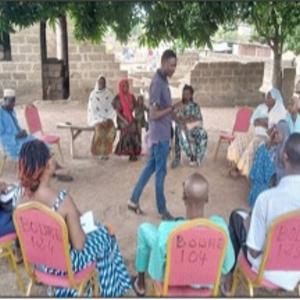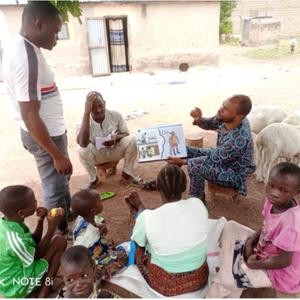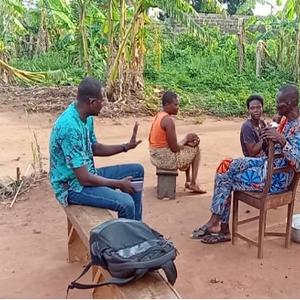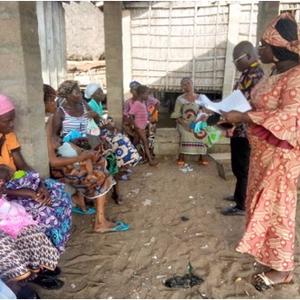Benin's Pioneering Approach to Polio Eradication: Community Engagement and Digital Innovation Drive Success
Summary
This article outlines Benin's innovative approach to polio eradication, highlighting community engagement and digital innovation during the response campaign from February 2 to 5, 2024.
Benin's Pioneering Approach to Polio Eradication: Community Engagement and Digital Innovation Drive Success
Information Note on the Implementation of the Polio Response Campaign from February 2 to 5, 2024
As part of the global initiative to eradicate polio, Benin organized a response campaign against the 27 cases of cVDPV2, including 3 isolated cases of Acute Flaccid Paralysis (AFP) and 4 from environmental surveillance in 2023, and 20 isolated cases in 2022 including 12 cases of AFP and 8 from environmental surveillance. In October 2022, a response was organized but was suspended following several severe Adverse Events Following Immunization (AEFI) reported. This suspension increased rumors and reluctance regarding vaccination.
To address this situation and following the results from AEFI experts, the Ministry of Health with the support of its partners (UNICEF, WHO, CDC/Atlanta, Rotary, etc.) organized a response campaign from February 2 to 5, 2024, in thirteen municipalities of five departments (Atlantique, Borgou, Donga, Littoral, and Ouémé) at risk of a polio epidemic to strengthen the immunity of 1,396,797 children under five in the said departments.
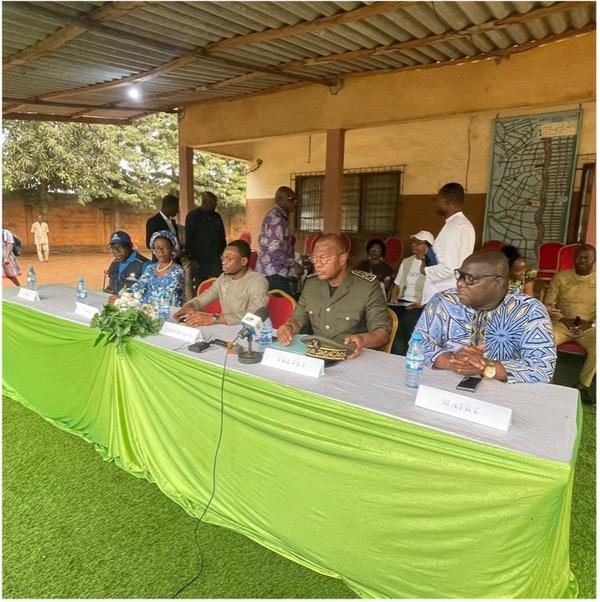
Campaign Preparation
Before the start of the response campaign, communication activities were carried out to mobilize decision-makers and opinion leaders to support health personnel in raising awareness to garner population support for the vaccination campaign. This included:
- Designing and producing communication messages, tools, and materials and a training guide for communication actors;
- Advocacy with local elected officials, religious leaders, and leaders of women's and youth associations;
- Advocacy with village chiefs and traditional leaders;
- Training of local supervisors, radio animators, young U-reporters, relay criers, and megaphone users on the messages to be disseminated and communication strategies to be used;
- Official launch of the response campaign by the Minister of Health.
Campaign Implementation
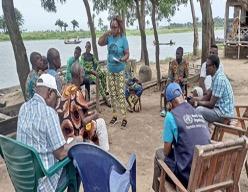
During the campaign, close supervision of vaccination teams and community mobilizers/relays was carried out by supervisors at all levels of the health system hierarchy to achieve the goal of vaccinating all children from 0 to 59 months in each municipality of the five departments. The strong commitment of the Minister of Health was evident in the coordination meetings held daily with all stakeholders involved in the response in the presence of representatives from WHO and UNICEF. Additionally, the use of digital tools "ODK forms and KoboCollect" helped to strengthen the field supervision mechanism. Thanks to the implementation of community health policies in 11 of the 13 municipalities, community relays were deployed in their clusters to engage with all parents of children in each household and manage cases of refusal with the support of their supervisors.
Campaign Results
After the response campaign, independent monitoring and LQAS were conducted by WHO to evaluate the quality of the campaign's interventions in the mentioned municipalities. The following results were obtained:
- 91% of parents were informed before the vaccination teams' visit;
- 1,429,423 children from 0 to 59 months were vaccinated with an administrative coverage rate of 102%;
- 5% of children from 0 to 59 months were missed during the campaign (53% due to absence and 25% due to parental refusal);
- Reasons for parental refusals were 36% due to sick children, 34% due to side effects, and 22% other;
- 13 out of 22 batches were accepted by the LQAS survey, which is 59%.
- 262 cases of unresolved refusals in 89 localities of five departments.
One of the essential activities of the recovery plan was rapid research on the reasons for parental refusal of polio vaccination.
UNICEF supported the Ministry of Health's Department of Basic Hygiene, Sanitation, and Community Health (DHAB-SC) from April 2 to 26, 2024, in conducting a rapid survey of localities identified for refusing vaccination. Thirteen focus group sessions and 34 in-depth interviews in 32 villages across 14 municipalities helped clarify the real reasons for the refusals among parents of children under five. The findings revealed:
- Lack of trust in the polio vaccine;
- Lack of free treatment for AEFI;
- Poor reception at health centers;
- Suspicions about vaccine quality;
- Discouragement towards country's decision-makers;
- Distrust of unknown vaccinators;
- Ignorance and misunderstanding;
- Inequity in the delivery of basic social services.
After various focus group sessions and in-depth interviews, the researchers provided appropriate information to dispel parents' concerns and apprehensions about the quality of the vaccine and polio vaccination. As a result, 176 parents were educated, including 105 women during focus groups and in-depth interviews. In the end, the parents agreed and committed to having all their children from 0 to 59 months vaccinated during the next response campaign.
Moreover, all the information collected from parents of children under five and the wider community will be used to propose communication strategies and appropriate messages for each locality to persuade other reluctant parents to vaccinate their offspring during future polio response rounds.
